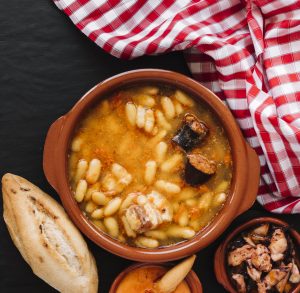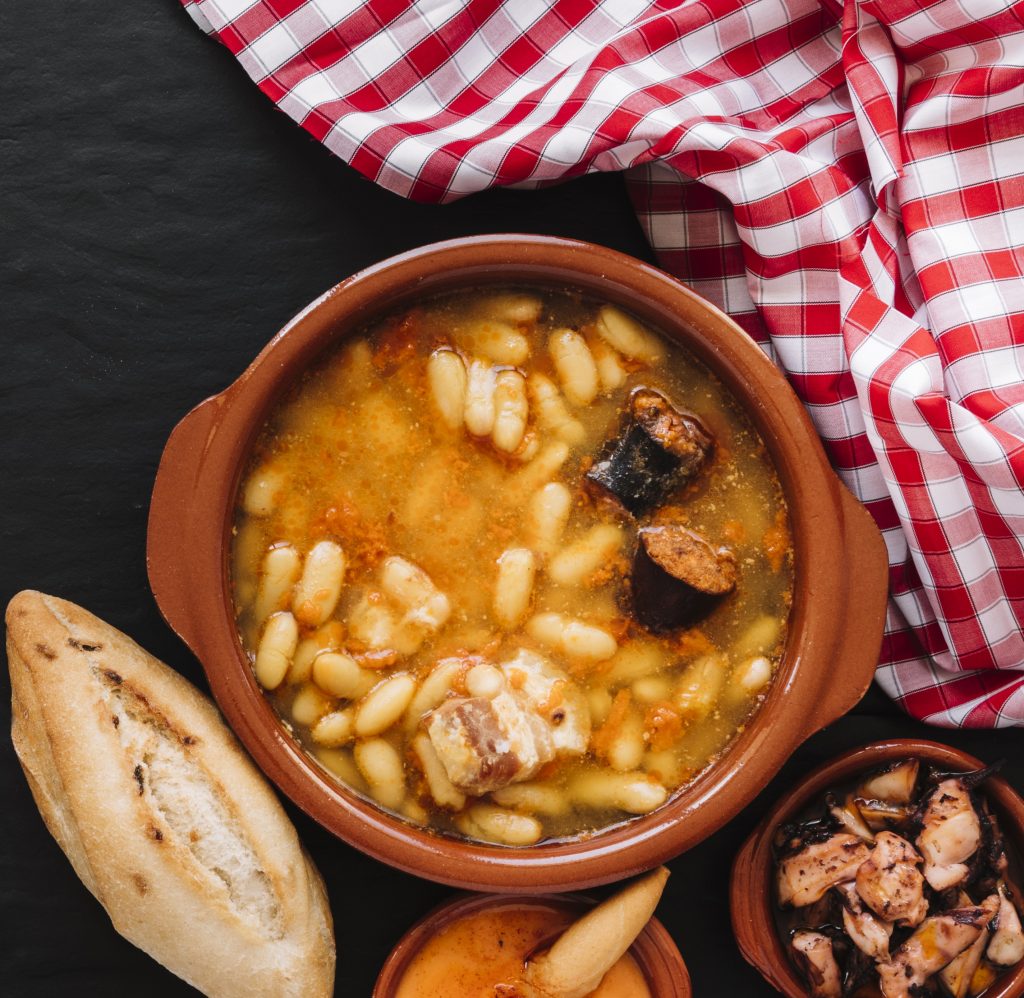Feijoada is one of the most emblematic dishes of traditional Portuguese cuisine. Rich in flavors and history, Feijoada à Portuguesa is a robust stew made with beans (red or white) and various meats. In the North of Portugal we find one of its richest and most authentic versions: the Feijoada à Transmontana (Transmontana – of or relating to the region of Trás-os-Montes).
Made with red beans, the Feijoada à Transmontana stands out for its generous use of regional sausages, such as chouriço, farinheira and morcela, as well as pork, including pork ear, pork belly and ribs. The ingredients are cooked slowly, releasing intense flavors and comforting aromas typical for smoked dishes and mountain traditions. Originating in humble kitchens, where nothing was wasted, Feijoada has evolved to become a comfort dish that brings families together at the table, being a symbol of sharing and rural life, often served on festive occasions or on family Sundays. Accompanied by white rice (and red wine), it is a robust and comforting dish, ideal for the cold months of the year.

Although the North has this version, other regions have also left their mark on the history of Feijoada. In Alentejo, for example, there are variations that include coriander and mild to hot pepper flavors. In the Algarve, it is common to find seafood Feijoadas, such as those made with whelks, with a light and coastal touch. In Brazil, Feijoada gained worldwide fame with the use of black beans and smoked meats. Feijoada à Portuguesa is a symbol of national cuisine: simple, generous and deeply tasty, remaining one of the most genuine expressions of traditional Portuguese cuisine.



